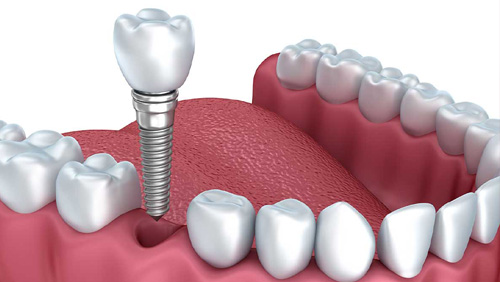 Dental implant surgery is a procedure that replaces damaged or missing teeth with artificial teeth that look and function much like real ones. Dental implant surgery can offer a welcome alternative to ill-fitting dentures or bridgework.
Dental implant surgery is a procedure that replaces damaged or missing teeth with artificial teeth that look and function much like real ones. Dental implant surgery can offer a welcome alternative to ill-fitting dentures or bridgework.
How dental implant surgery is performed depends on the type of implant and the condition of your jawbone. But all dental implant surgery occurs in stages and involves several procedures. The major benefit from implants is solid support for your new teeth — a process that requires the bone to heal tightly around the implant. Because this healing requires time, the process can take many months.
If you’ve developed gum disease severe enough to require surgery, your dentist may discuss some of these types of gum surgery as ways to treat the problem:
Dental implants are surgically placed in your jawbone, where they serve as the roots of missing teeth. Because the titanium in the implants fuses with your jawbone, the implants won’t slip, make noise or cause bone damage the way fixed bridgework or dentures might. And the materials used can’t decay like your own teeth that support regular bridgework can.
In general, dental implants may be right for you if you:
- Have one or more missing teeth
- Have a jawbone that’s reached full growth
- Have adequate bone to secure the implants, or are able to have a bone graft.
- Have healthy oral tissues.
- Don’t have health conditions that will affect bone healing.
- Are unable or unwilling to wear dentures.
- Want to improve your speech.
- Are willing to commit several months to the process.



